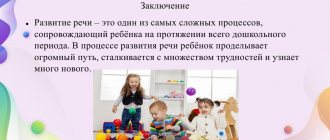If you are the parent of a five-year-old child, then ask yourself, how is your relationship with him? Do you always understand him, are you interested in what worries the baby? After all, adults often show respect and attention to other people, but cannot build a trusting relationship with their child. To understand how to find the right approach to a five-year-old little man, you first need to delve into the psychological characteristics of the development of children during this period.
Children aged 5 are very curious
Psychology of a child at the age of five
This stage in a child’s life is usually characterized as transitional: from early childhood to the status of a preschooler. There is active development and knowledge of the surrounding world. Children at the age of five overcome a certain turning point; they become aware of themselves as individuals in a social environment, their qualities and capabilities. They are more sensitive to how others treat themselves. All this suggests that the little person is developing his own self-esteem. What it will be like depends on many factors, but first of all on what he receives from the world around him. Especially from communicating with adults.
Communication with parents is an important factor in psychological development
Advice: you should pay attention to your behavior as a parent, because the child very actively copies it. Examples of close relatives (brothers, sisters) also have an influence in this regard.
Psychological tests for 5 years old
By nature, any child wants to be good, to be appreciated and praised. Therefore, it is extremely important to support this desire both for parents and other adults (grandparents, teachers). If a child does a positive thing, it is definitely worth celebrating. But the main thing here is to indicate what exactly you are praising him for. The child must understand that doing this is good and repeat his actions in the future.
Psychologists' opinions on this topic
Psychologist Yu. Burlan developed system-vector psychology, which examines in detail the functional causes of speech defects in children of five years of age. Speech problems are considered from the perspective of mental characteristics. Scientists introduced the concept of a vector, which is a set of innate character traits and behavioral psychotypes.
These factors are fundamental in the formation of speech characteristics. The author has identified several vectors. This technique for identifying the functional causes of speech development disorders in childhood allows us to identify the causes of speech defects and makes it possible to speak correctly.
It is necessary to consider vector groups of children who speak poorly at the age of 5 (4 vectors out of 8 are allocated for 5-year-olds):
- The skin vector is for active children. The child of this vector speaks very quickly, his pronunciation is incomprehensible. He is in a hurry, so his sentences are short and choppy. The structure of words is disrupted. For example, instead of the word “doctor”, they can say “dotcore”, instead of the word “mo-lo-tok” they will say a word like “to-mo-lok”, i.e. rearrange letters and syllables in words. They may not fully pronounce words. For example, instead of the word “ball”, they say “myaik”. These children have problems with hissing sounds and the letters R and L.
- Anal vector - characterizes slow and sluggish children. They constantly take breaths during conversations and lisp all the time. The structure of words in children of the anal vector is broken (the same as in skin children). When pronouncing some words, children soften the endings. For example: table - so, chair - chair. It is difficult for them to pronounce whistling sounds and R and L. For example, I want - I want it.
- The oral vector is children who tire others with their chatter. But at the age of five, such children speak unclearly and constantly swallow words. Such kids chatter loudly, without pausing between topics. They tend to often touch their fingers to their lips and place their hands on their cheeks. When speaking, the tongue is visible between the teeth. The tongue is especially noticeable when the child makes whistling sounds. There are no hisses in his speech. For example, his cat will sound like “koska”, iron like “ziezny”. He doesn’t pronounce the ending, pronounces the words casually, and makes up what to chat next on the fly. His thoughts are not always clear, he says a lot of unnecessary and unnecessary things, but everyone has to listen to him: both children and adults.
- Sound vector - 5 year olds are characterized by slurred pronunciation. These children are from the silent category. At the age of 5 years, such children can immediately begin to speak in long sentences. Such kids think well and can work with large amounts of information. These children, having begun to talk, catch up with their peers in speech development. Children of this type have a quiet voice, they ask a lot of questions, and often withdraw into themselves, moving away from the surrounding reality. Therefore, they tend to constantly ask again. Their speech is consistent, but with constant pauses. They do not always pronounce the sounds Ch, Z, Ts clearly. For example, the word clean is spoken as “shisty”, the word castle, they are pronounced as “zhamok”, the word heron, they say “saplya”. Such children sometimes seem strange and inhibited. Without recognizing the manifestation of a psychotype, an incorrect diagnosis of autism may be made. Therefore, this category of children must be examined quite carefully.
Emotional and cognitive aspects of development
At the age of five, the emotional sphere continues to steadily develop and mature. You may notice that your baby's feelings become deeper. If before he experienced rather simply the joy of communication, now this is expressed in a more complex form: sympathy and affection. And from here such moral concepts as friendship, sensitivity, kindness, and, over time, a sense of duty take their roots.
The child also shows the ability to think. However, he may not always come to the right conclusions.
Emotional development of 5-year-old children
Then follow this advice: parents should respect the baby’s first conclusions and unobtrusively correct them if necessary.
In general, during this period children actively develop their cognitive sphere. A child is also capable of accumulating knowledge about those objects of the surrounding world that he has never seen with his own eyes. For example, about certain animals, countries, cars, etc. This knowledge forms his specific attitude towards the world (love for pets, fear of wild animals, etc.). The baby strives to share this wealth of knowledge and impressions with his peers.
The age of why is 5-6 years
Communication skills of five-year-old children
The child shows increasing interest in children of approximately the same age. And from habitual communication only in the family, he increasingly moves on to broader relationships with the outside world.
Often a preschooler in this period divides children into “good” and “bad.”
But in this way he evaluates them based on the opinions of adults. Kids can be friends, quarrel, be offended, seek reconciliation, even be jealous, but they also help each other. The child has an increasing need for recognition of himself as an individual and respect among other peers.
Communication with peers is an important component of development
Due to the fact that in children of five years of age, cognitive interest predominates when communicating with adults, a lot of questions that they ask are inevitable. More often in the character of “why”. This happens because it is the adult who is the indisputable authority, the source of knowledge.
Helpful advice: it is important to listen to the child, because no one else but the parents can clearly explain to the child everything that worries him and replenish his knowledge.
Strong-willed qualities and focus develop. With their help, children can overcome certain difficulties that arise at this age. But along with active independence in the spirit of “I do it myself,” children are often overtaken by failures, discouraging them at the same time. And if there are a lot of mistakes, this can subsequently lead to a feeling of insecurity.
Parents should pay attention to the physical development of children
Emotions
“Beep” cheerfully, hum loudly and fervently, like a steam locomotive “Toooooo-toooo,” and also moo, crow, and all this with a smile, enthusiasm and a sing-song voice. Children love emotionally charged games and will be happy to join in the activities. Sing various tunes with your kids, remembering to pronounce the sounds clearly. Do not hesitate to articulate more clearly and emotionally than in ordinary life. After all, children learn to speak not only by listening to speech, but also by looking at our mouth. What happens on his face when he hears “Meow”? Show!
How to build trust with your child
In fact, no special knowledge or action is required in this matter. The main thing is to always put yourself in your child’s shoes, strive to imagine the world as he sees it. And then it will be much easier to understand what your baby wants and how exactly you can help him. It’s clear that adults don’t really remember what they were like at five years old, but something remains in their memory. It would be good to sometimes remember and ask yourself questions: “How did I behave at this age? what I liked, etc.” Simply put, look at the world through a child's eyes.
Curiosity at 5 years old is the basis of intellectual development
The relationship between parents and children is, so to speak, a whole field for the development of skills such as care, help, respect. A five-year-old child is susceptible not only to memorizing rhymes, numbers, and letters. You can really talk to him, even about love. Just try, sometimes you can hear the amazing truth that adults are afraid to tell themselves. But more often in society it is understood this way: what can a child of five know?
Comparison with other children is unacceptable
To understand how to establish a relationship with a child and trust each other, you need to remember some things and adhere to simple rules in everyday communication.
“ONE CANNOT TOLERATE SCORING”
Some parents may find it strange to advise them to indulge children’s whims, let things go, turn a blind eye to tantrums and try to talk when it’s easier to calm the child down by shouting or spanking. Where to put the comma is up to you, but it’s better to be patient.
Any childhood crisis is a test for both sides, but it is an integral part of growing up at every age stage. This is the final stage of an entire period of childhood - figuratively speaking, the “annual control”. The task of parents is to help the child gently and without loss overcome this difficult path to the formation of a mature personality, the formation of his own “I”.
Principles of the correct approach to a child at the age of five
Agree that even an adult will be pleased when someone comes up to him after a hard day at work, asks “how are you?”, hugs him, and warms him with a kind word. It’s the same with children. Just talk to them in a friendly way, ask how their day was, what was new in the garden, or maybe ask deeper questions about what worries them.
Important advice: if you do this sincerely, with love, the child will definitely open up and answer you.
- Watch the tone in which you speak to your son or daughter. The speech should be friendly and encouraging. Even if the baby has upset you with something, you can clarify the situation in a calm tone, without shouting. It is easier for five-year-old children to respond when there is no pressure on them, but when they try to understand why they did what they did. If you explain something to a child, do it as simply as possible, in a language he understands. Accessible, clear and unambiguous.
- Always listen to your child. Do this carefully, do not try to interrupt, even if he says something that is not entirely logical. You can carefully correct what was said after the child has finished speaking. And then he will definitely take this into account.
- Set clear boundaries in the child’s behavior, but according to his age characteristics. It is important that he understands: if certain things cannot be done, then this rule does not change.
Advice: here it is important not to give slack to the adult himself. If you say that there is enough candy for today, and then you give out more, then the child will not have a stable concept, and when it is really impossible, a feeling of permissiveness will develop. Children actually love boundaries and rules.
- In your relationship with a five-year-old child, show maximum patience. After all, often children themselves do not know what they want and why this happens to them. They are still learning this skill of understanding themselves. And it’s normal that a child may take longer to get dressed, clean, and walk than you want. Who would like being constantly pulled back and rushed?
- It's good when parents encourage their children's curiosity. Naturally, a 5-year-old child asks a lot of questions. There is one caveat here. The kid definitely wants an answer. And how he recognizes it directly depends on the adult. Try to become the main source of correct information for him at this age. You don’t need to have special erudition to do this. Advice to parents: if you don’t know what to answer to your child, suggest looking for it together in a book or at least on the Internet. But be sure to find the answer, otherwise he may find it elsewhere. And there are no guarantees that this information will be correct.
- Pay attention to what your child is interested in. Try to grasp what he is drawn to and develop these abilities. You can, of course, try different areas of hobbies, and then gradually determine what your child likes best: singing or drawing, English or skating. The child must preserve his originality. Parents should not force his interests on him.
Development of abilities and learning - preparation for school
- Be a positive example for your child. It’s not without reason that they say that children are a mirror of their parents. At this age, they grasp everything instantly, both good and bad. So watch your words, emotions, actions. But if you made a mistake in the presence of a child, then you need to explain that adults can make mistakes too.
- Never, under any circumstances, compare your child to others. This factor greatly affects his self-esteem. You should also not constantly criticize and scold your child, especially in front of other people. It is better to talk through the situation in a calm state. At the same time, you should look directly into the baby’s eyes, but with an understanding look.
- Do not demand or expect from your child what he is not able to do at his age. Everything should be in moderation, including the number of rules and restrictions. When there are too many of them, he may stop noticing them.
Educational games are a very important moment in the development
And the last point is highlighted separately. These are games
You should play kind, educational games with kids. And it is best to build a relationship with a five-year-old child in this form. This means that the baby needs to be captivated by one activity or another: turn cleaning into a fun competition to see who can put the cubes together faster; You can also turn cooking into a game, sew an apron for your child, and your baby will become your assistant in the kitchen.
Joint games will help parents better understand their children
You also need to participate in the children's games themselves.
Just do it from the heart, with love, to be imbued with this process. Then the child will really be interested in his parents. And this is also the key to a good relationship with your own baby. Remember that you and your child should enjoy communication. If so, then you are on the right track! leave a comment








